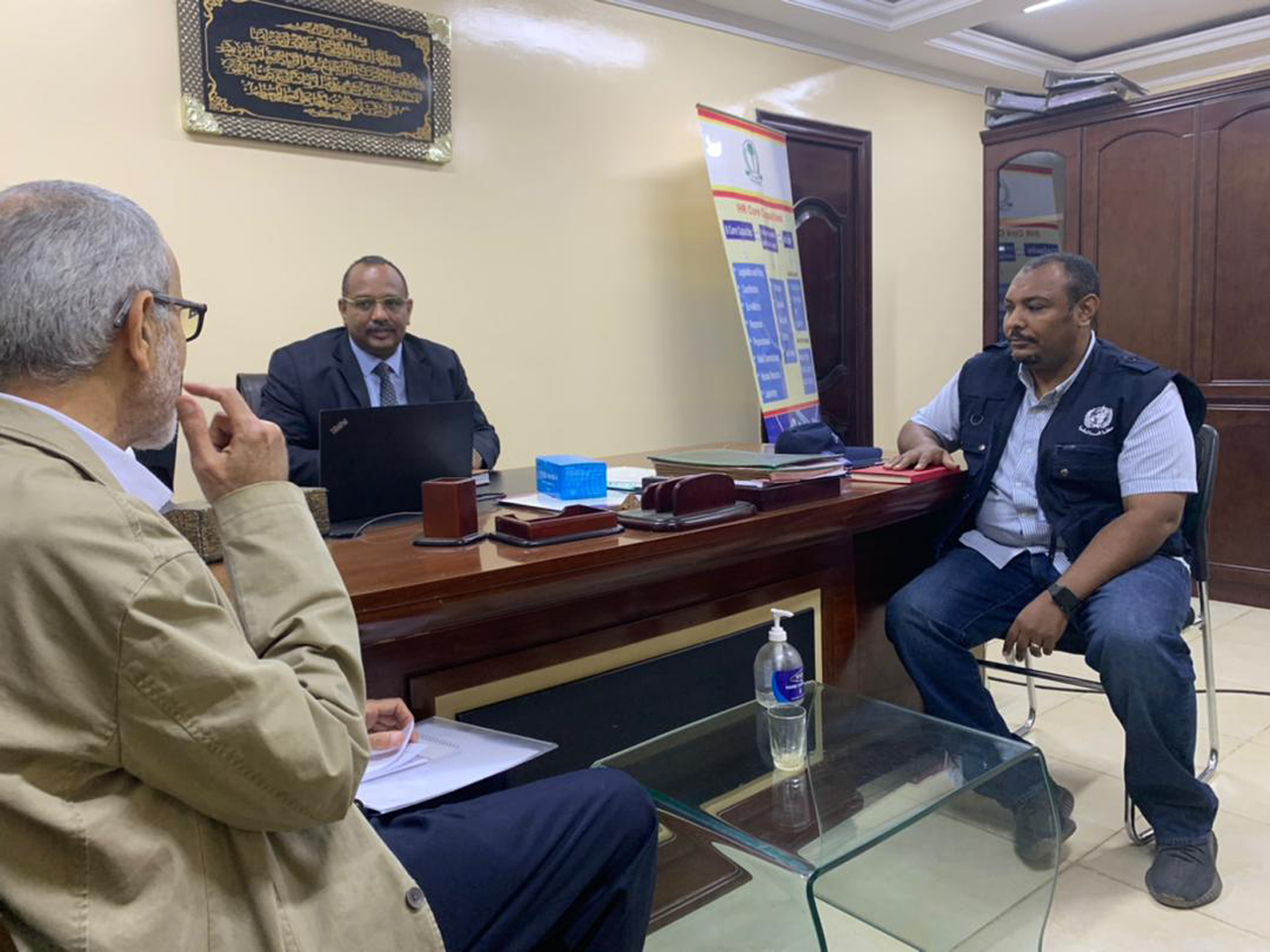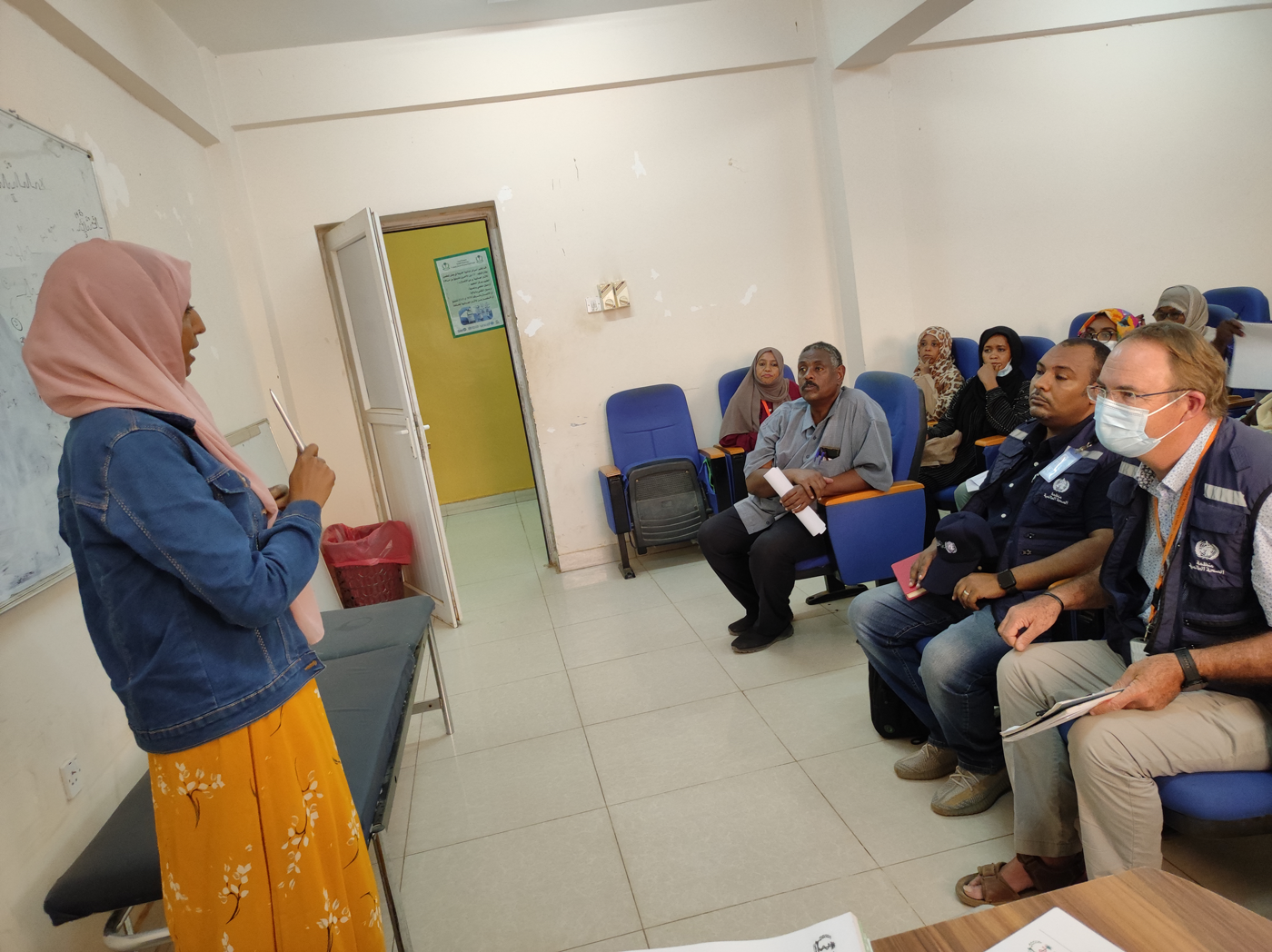 A consultative meeting with the Federal Ministry of Health, Sudan. Sudan, 19 September 2022 – The Infectious Hazard Prevention programme at the WHO Regional Office for the Eastern Mediterranean deployed an expert to Sudan to support influenza surveillance. The deployment aimed to support the Federal Ministry of Health to re-activate the dormant sentinel surveillance system and promote the integration of severe acute respiratory syndrome coronavirus-2 (SARS-CoV-2) and other respiratory viruses.
A consultative meeting with the Federal Ministry of Health, Sudan. Sudan, 19 September 2022 – The Infectious Hazard Prevention programme at the WHO Regional Office for the Eastern Mediterranean deployed an expert to Sudan to support influenza surveillance. The deployment aimed to support the Federal Ministry of Health to re-activate the dormant sentinel surveillance system and promote the integration of severe acute respiratory syndrome coronavirus-2 (SARS-CoV-2) and other respiratory viruses.
The expert’s support centred around operationalizing the otherwise stalled process of case enrolment through use of standard WHO case definitions, collection of data and specimens, reporting of data from sentinel sites to the Ministry, data management, and sharing of data with WHO using regional and global platforms.
During the deployment, surveillance and laboratory processes were monitored and assessed. Meanwhile, the need for regular coordination between both the surveillance department at the Ministry and National Public Health and Reference Laboratory with the National Influenza Centre was emphasized.
Consultative meetings were also conducted with different stakeholders from the WHO country office, the Federal Ministry of Health and National Influenza Centre. The meetings assessed the current situation, addressed challenges, highlighted areas for support, ensured policy-making commitment, sustainable approaches and ways forward.
In addition, field visits to the previously designated 3 sentinel sites were organized to carry out advocacy, orientation and hands-on training for sentinel teams. The deployed expert with key stakeholders from WHO, Ministry of Health surveillance and National Influenza Centre experts convened to refine and update the national Standard Operating Procedures (SOPs) and review the guidelines for the influenza and other respiratory viruses sentinel surveillance system.
Way forward
A plan for cascade training for all surveillance and laboratory staff was prioritized as a way forward to be conducted shortly after the endorsement of the updated SOPs and guidelines. The continued provision and quality control of multiplex testing kits was also ensured. Additionally, advanced molecular training for National Influenza Centre staff was planned with responsible laboratory staff from the WHO Regional Office.
With the support of WHO, Sudan will be preparing to share samples with WHO collaborating centres within the next influenza season.
Activities for updating and testing the national influenza pandemic preparedness plan were also discussed in addition to the initiation of this process in the last quarter of 2022 and to continue throughout 2023.
 A field visit during the deployment, Sudan.
A field visit during the deployment, Sudan.
Strengthening influenza surveillance systems
WHO provides continuous technical support to countries, including Sudan, to enhance and strengthen influenza surveillance systems, which have been disrupted due to the COVID-19 pandemic. The system in Sudan, from 2016 to 2018, was operational with regular influenza-like illness and severe acute respiratory infection case identification, and influenza viruses were regularly reported from 3 selected sentinel sites, representing the main localities in Khartoum State.
However, by the beginning of 2019, this system had been disrupted due to ongoing political and civil conflict, in parallel with the emergence of the COVID-19 pandemic. Most public health resources had been allocated for the COVID-19 pandemic response. In addition, there was a significant turnover of health personnel and trained surveillance staff that affected the functioning of the surveillance system.
Sudan is one of 10 countries in the Region benefiting from the contribution of the Pandemic Influenza Preparedness (PIP) Framework. Through this Framework, WHO works with ministries of health to enhance national influenza surveillance capacities and strengthen influenza pandemic preparedness and response systems.
The collaborative work between the WHO country office, alongside Ministry of Health surveillance and National Influenza Centre coordination, are key pillars for the success behind this rapid reactivation and operationalization of integrated influenza and SARS-CoV-2 surveillance in Sudan.
The Regional Office will continue to support countries of the Region to detect and respond early to influenza and other emerging respiratory disease outbreaks. This can only be achieved through improved sentinel surveillance systems using high-quality data to inform timely public health actions.
Related links
WHO launches appeal to respond to urgent health needs in the greater Horn of Africa


